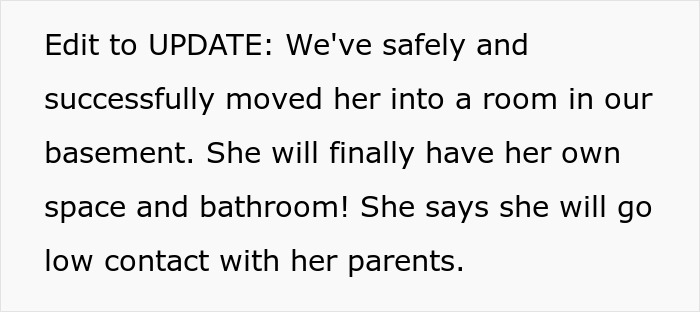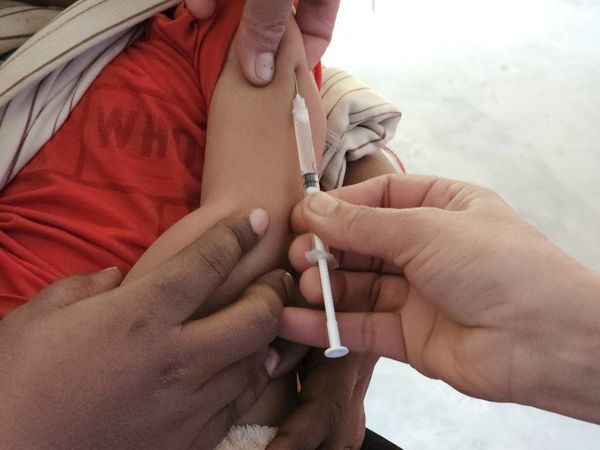Moving back in with the parents is rarely someone’s first choice after having started living on their own. But while some only have to deal with going back to old house rules, others fall into situations far less favorable.
This redditor’s friend moved back in with her family seeking to save up money for school. However, that wasn’t easy, as her stepdad charged her not only for rent, but for things such as not loading the dishwasher, too.
Bored Panda has reached out to the OP and they were kind enough to answer a few of our questions. You will find their thoughts in the text below.
Moving back in with the parents might not be one’s first choice

Image credits: cottonbro studio / pexels (not the actual photo)
This woman’s stepfather made her pay rent and charged her for not loading the dishwasher when she moved back

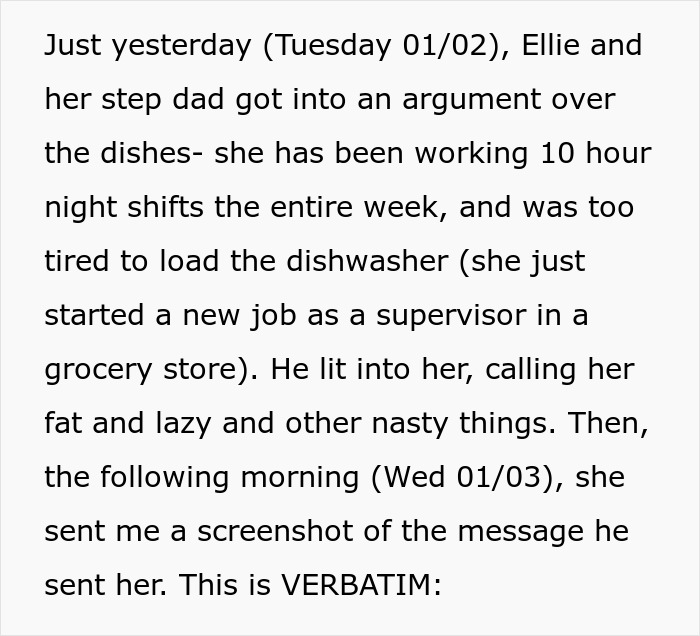
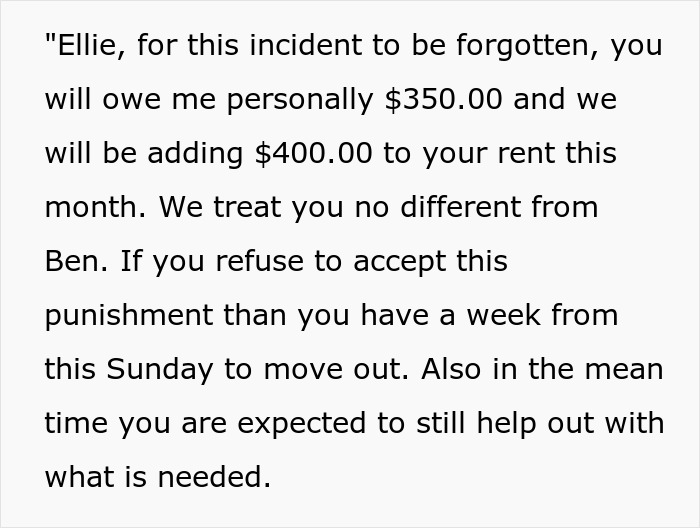


Image credits: Zinkevych_D / envato (not the actual photo)
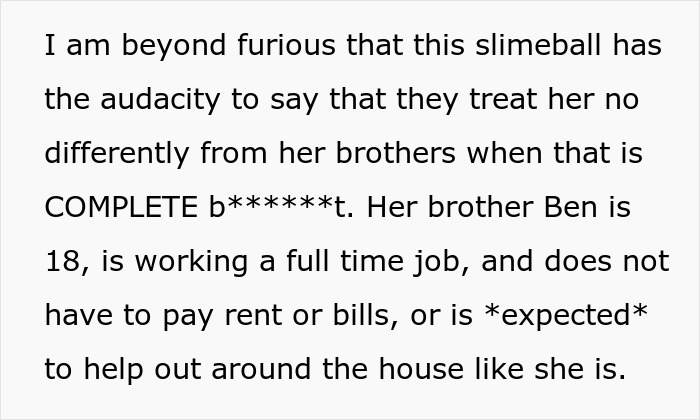
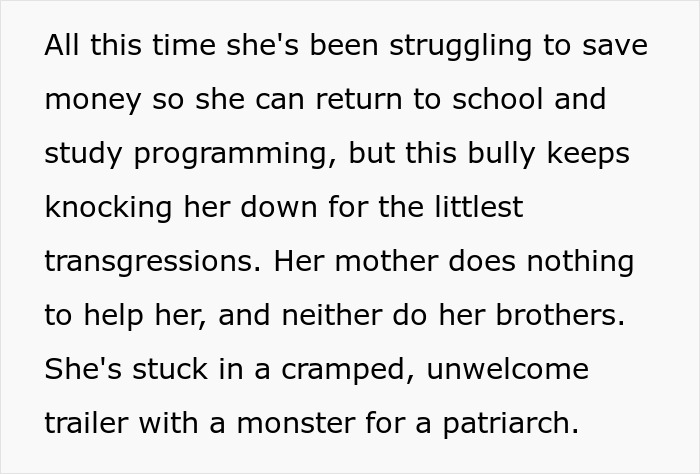
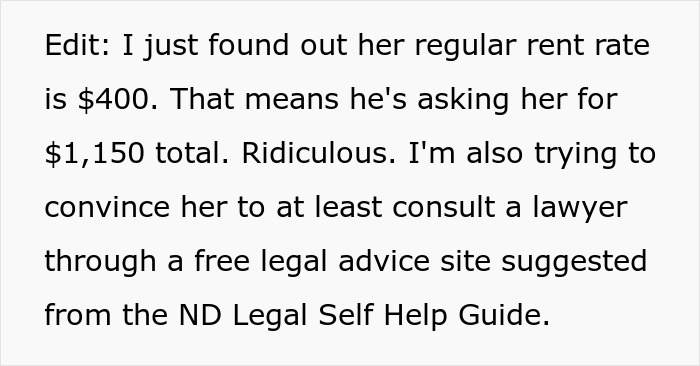
Image credits: AddictedtoSmirnoff
This seemingly wasn’t the first time the woman’s stepdad treated her unfairly
“What is the most upsetting about my friend’s situation is her stepdad’s callousness towards her,” the OP told Bored Panda in a recent interview. “Many, many times he has threatened her housing, her finance, and her friends, forcing her to do his bidding. She’s never felt stability in her life, and where he should have stepped up as a father, he failed immensely.
“From an outsider’s perspective—as many redditors commented—it seemed like the easiest solution was to ‘just move out’,” the young woman’s friend added. “But anyone who has had experience with or in abusive relationships knows that it is never easy to leave. Abusers crave control, and where they don’t get it, they will force it.”
Nowadays, quite a few adult children go back to living with their parents for one reason or another

Image credits: cottonbro studio / pexels (not the actual photo)
Coming back to live with the parents can present a person with numerous challenges. Even if once used to their ways and certain rules, the child tends to create their own routine when living elsewhere, which might make it difficult to merge the two realities upon moving back in.
But sometimes, people have no other choice but to rely on the kindness of their parents opening the doors of their homes again. As a matter of fact, so many people lately have found themselves in such a situation, the decision once considered somewhat shameful has become far less stigmatized, research suggests.
The study carried out by the Institute for Social and Economic Research (ISER), University of Essex found that not only is such a decision viewed more positively than it used to be, the people returning to the homes of their families feel better themselves, too. To the surprise of the authors of the study, the findings showed an improvement in the state of their mental health despite losing some of their independence.
“We expected that probably their mental health would get worse if they had to give up their independence and that they might feel that they were falling behind their peer group and going back might seem retrograde,” pointed out Emily Grundy, co-author of the study and professor of population science, as reported by The Guardian.
According to the expert, some of the main factors encouraging adult children to move back in with their parents include rental costs, as well as individuals staying in schools longer than they used to and getting partners and starting families later.
Stepparents and stepchildren might face hurdles while building a relationship

Image credits: Darina Belonogova / pexels (not the actual photo)
For the OP’s friend, it too was financial matters that encouraged her to move back in with her family, which, in her case, comprised her mother, her stepdad, and two siblings. Unfortunately, such an arrangement didn’t make it much easier for her to solve the money-related issues—arguably, nor did it improve her mental well-being—as the mother’s partner charged her for different things she did or did not do around the house.
Even without fees or disagreements over living arrangements, a stepparent-stepchild relationship can be complicated enough as it is. According to professor of psychology at University of Virginia, Robert E. Emery, PhD, stepparents were once viewed as people who could ‘replace’ the biological parents, recreating the balance of a two-parent family; however, that’s no longer the case.
“Economically, there may be some truth to this, but psychologically, that is not the reality. Remarriage and stepparenting are new, tricky transitions for children, the stepparent and the biological parents,” he told the American Psychological Association.
The transition into becoming a stepfamily and the relationship between its members can be influenced by the way they choose to interact with one another. Research suggests that stepparents who engage their stepchildren with positive emotions, such as love, affection, and appreciation, and try to avoid expressions of anger or aggression, exert a positive influence on the child’s adjustment. Positive relationships between the stepparent and the child can reportedly ease other common challenges stepfamilies face, too.
The stepdad didn’t have the same relationship with the OP’s friend as he did with his two stepsons
Unfortunately, the stepfather of the OP’s friend didn’t seem to address the young woman with affection and appreciation. On the contrary, he made living at home arguably more difficult than it had to be by charging her for things such as not loading the dishwasher.
“Her stepdad has always treated her poorly, especially in comparison to her brothers. It was a risky decision to move back in, but her goal to save for college was/is extremely important to her,” the OP told Bored Panda, adding that her friend has since moved in with her and her boyfriend to a spare room in their house.
“I was worried things would escalate with her stepdad, but it’s been quiet,” they shared. “We’re happy she’s safe now with us, and hopefully is able to return to school soon so she can be successful.”
The OP provided more details in the comments
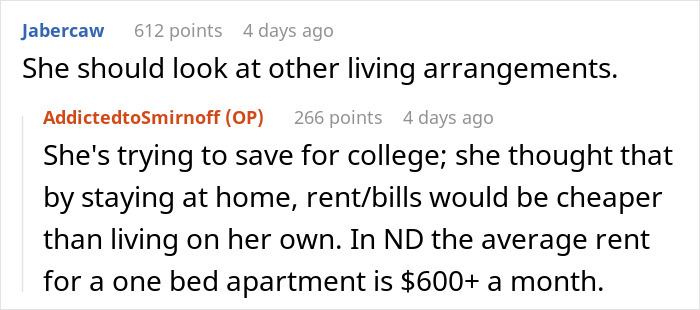
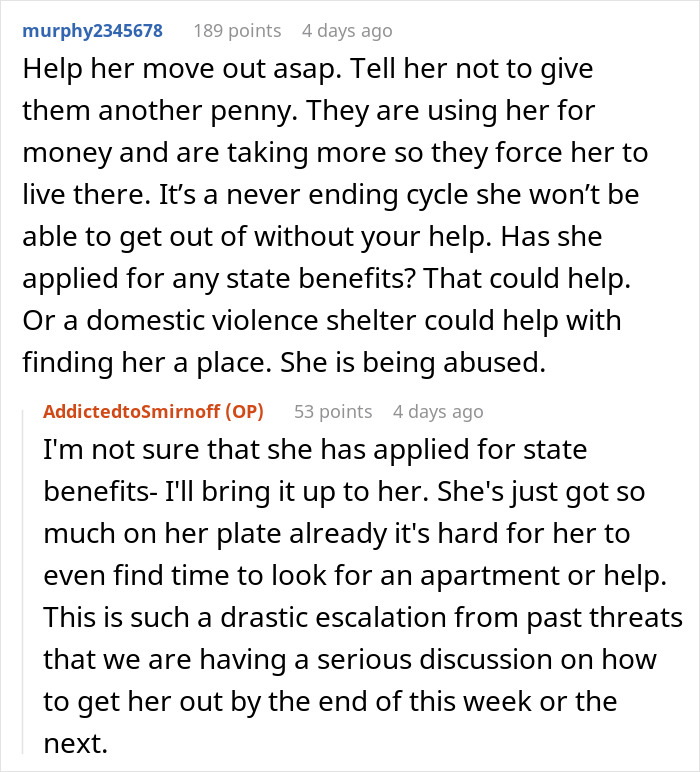
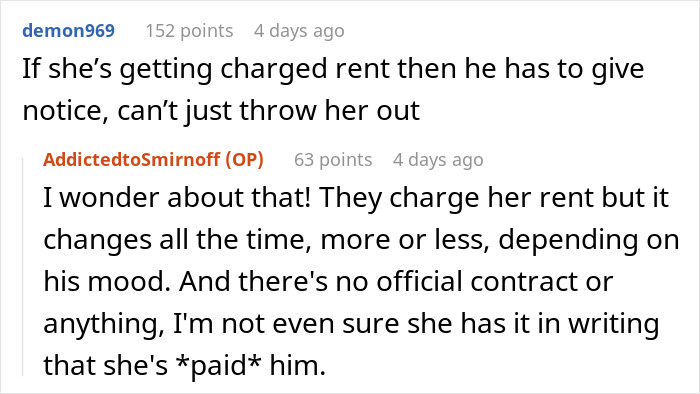



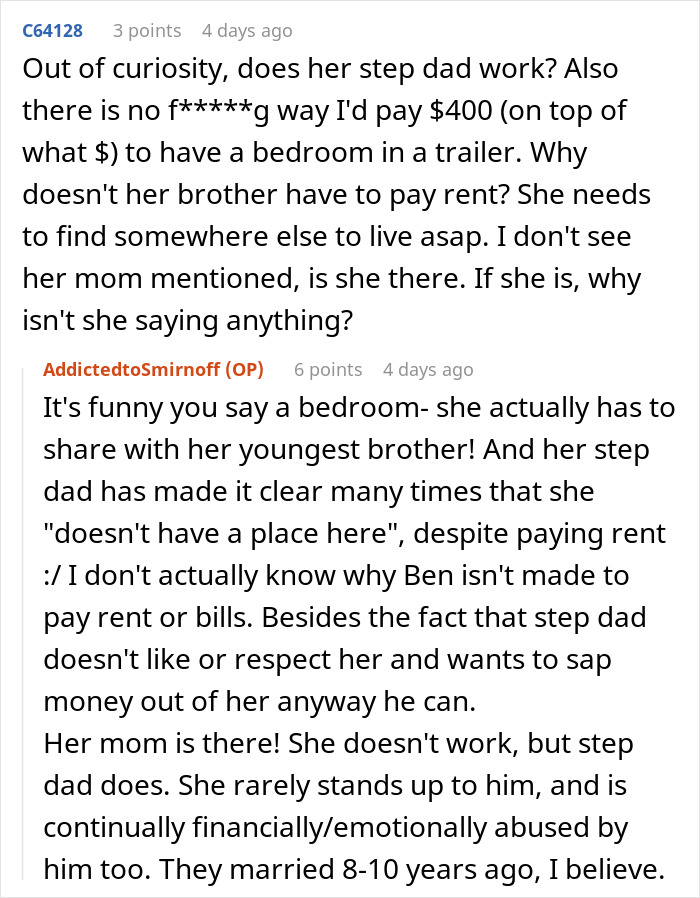
Fellow redditors shared their insight and suggestions
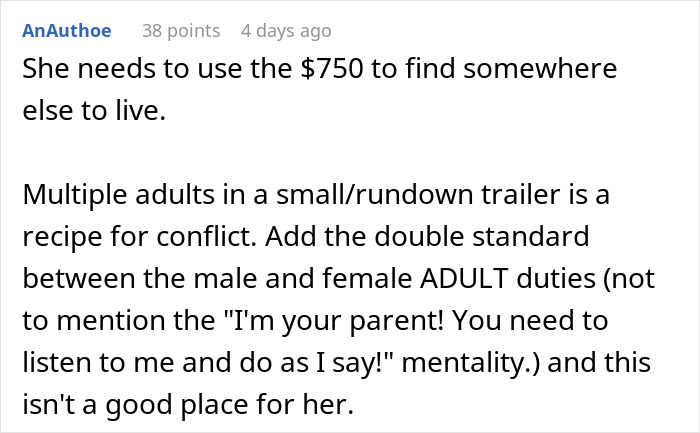





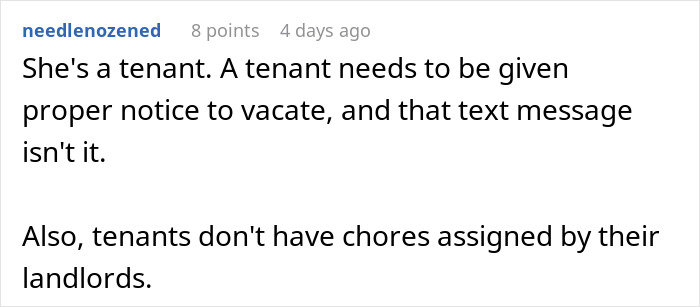
The OP shared an update on how the situation developed
